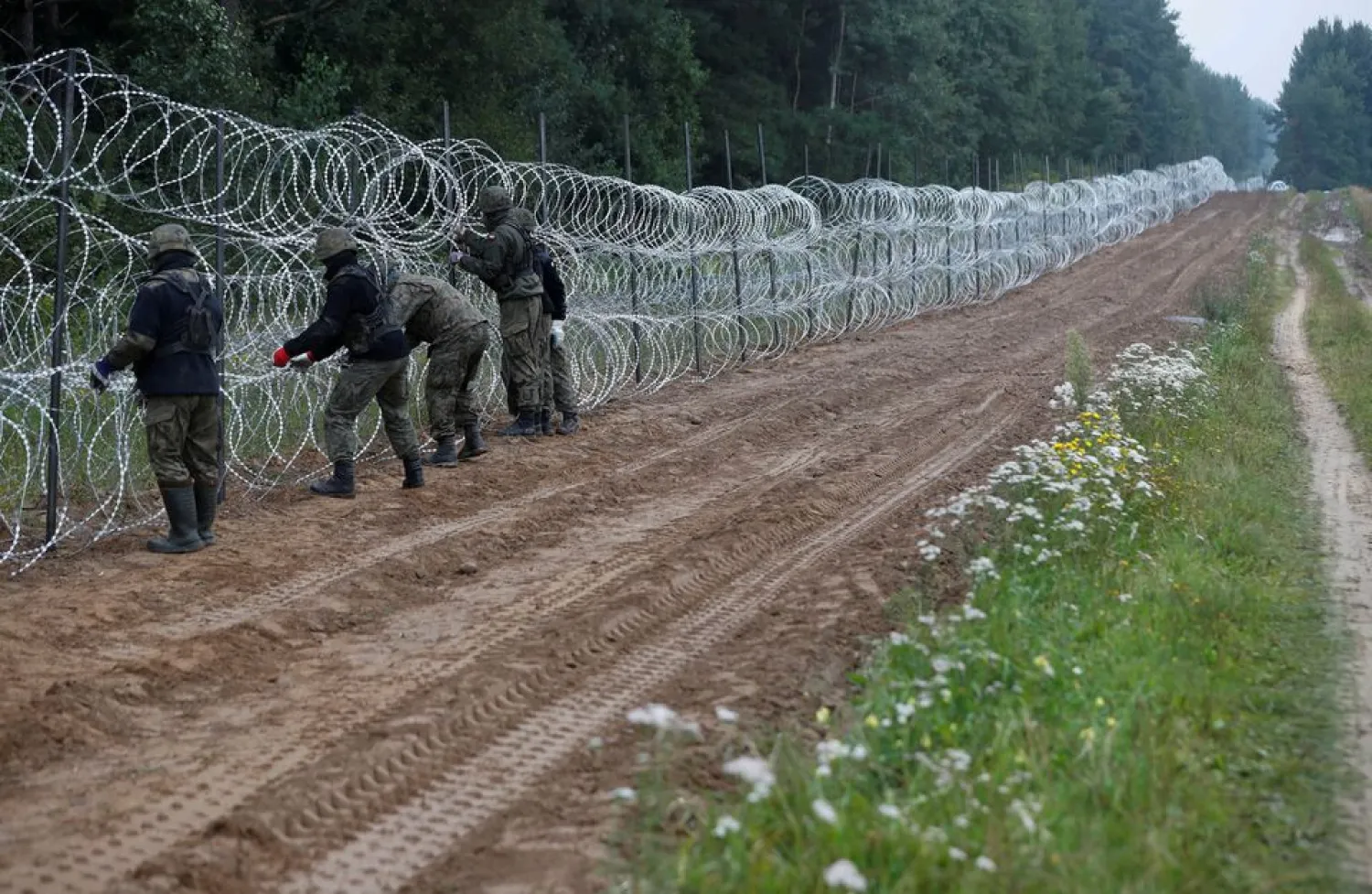An Iraqi man has been found dead on the Poland-Belarus border -- the 10th migrant to die on the border since the summer, Polish media reported on Monday.
Belarusian border guards in a statement on Saturday said the man had died on the Polish side of the border on Friday after crossing over from Belarus.
According to AFP, the statement said Polish guards had forced other migrants to drag the body back to the Belarusian side.
But a Polish border guard spokesman quoted by Poland's Gazeta Wyborcza daily on Monday said: "If such an incident had happened on the Polish side, the border guard service would have informed about it."
Gazeta Wyborcza said seven of the 10 migrants confirmed dead so far have been on the Polish side.
Contacted by AFP, Poland's border guard service did not immediately respond to requests for more information.
Thousands of migrants -- mostly from Africa and the Middle East -- have crossed or tried to cross from Belarus into the eastern EU states of Latvia, Lithuania and Poland in recent months.
The EU accuses Belarusian strongman Alexander Lukashenko of deliberately sending the migrants across in retaliation for their sanctions over a brutal crackdown by the regime on the opposition.
Migrants say they are often forced across by Belarusian forces and sent back by Polish officials, meaning that many are stranded at the border in increasingly severe weather conditions.
German police said on Monday that they registered more than 5,000 unauthorized border crossings last month by people who had arrived from Belarus, marking a significant uptick in the number of arrivals through a new and politically sensitive migration route.
Federal police said in a statement that October saw 5,285 unauthorized entries “with a connection to Belarus.” That contrasts sharply with the 1,903 arrivals recorded in September, bringing the total so far this year to 7,832.
Police said last weekend alone, 597 people who entered illegally from Belarus were found on the German side of the border with Poland. Of those, 391 were Iraqi citizens while the remainder were from Syria, Iran and Afghanistan. Most had Belarusian visas or entry stamps in their passports.









